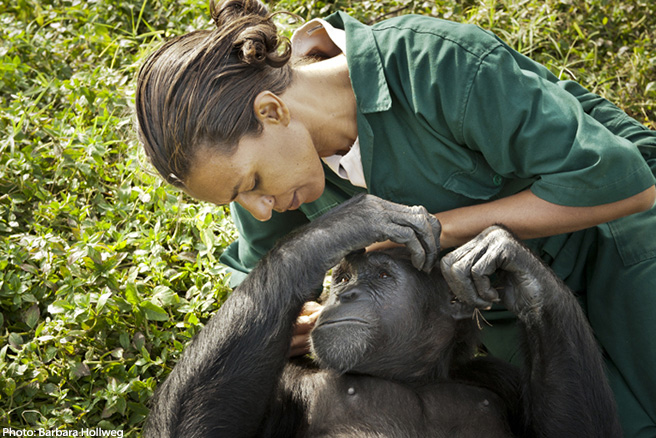We need women to be conservation leaders

In the past few years, women have increasingly taken key positions in African society, often in the political sphere. But it’s high time we recognized that more has to be done to include women in environmental decision-making.
Women in developing countries are both highly dependent on ecological goods and services and highly vulnerable to environmental degradation and crisis. Women make multiple choices every day that affect the environment. Most women in sub-Saharan Africa have traditional responsibilities as food growers, water and fuel gatherers, and caregivers. The gender-specific division of labor in rural agricultural societies means that many negative environmental effects are confined to women.
Women need to play a direct role in safeguarding the natural resources on which they and future generations are dependent, from the community level up to the highest levels of international policymaking and law. Critically, however, supporting structures for women’s involvement in natural resource management also need to be proactively developed. In many cases in Uganda, for example, conservation institutions (and other related institutions) are not adequately structured for women’s involvement, do not recognize the unique contribution that women can make to the sector and do not account for the obstacles that women face to become involved in the sector—or the challenges that they may face in the field.
As part of our strategy to build female capacity in biodiversity conservation management in Uganda, AWF has partnered with Uganda Wildlife Authority to champion a “Women in Conservation” program. Under this program, women who are regarded as conservation champions are supported to then mentor young women into conservation leadership. Lily Ajarova, executive director, Ngamba Island Chimpanzee Sanctuary, one of the women leaders, championed the program early on. She has mentored several young female graduates, including Dorothy Basemera, who was orphaned at a young age but nevertheless managed to complete her schooling through the post–secondary school level. She holds a diploma in tourism management, and, with support from AWF (through the USAID/Uganda Biodiversity Program), is now on a six-month cultural exchange at Disney.
“The USAID program and Lily’s commitment to see me succeed has inspired me,” says Dorothy. “I want to be like Lily and contribute to conservation as much as she is.” Dorothy is looking forward to coming back to support conservation in Uganda.
The Women in Conservation program is part of the overall AWF program strategy in Uganda to build national capacity in biodiversity conservation management. This is being done by modeling approaches and systems that can be scaled up—in this case, with the goal of increasing the number of women and youth involved in biodiversity conservation through mentoring.
The 25th African Union Summit is taking place this week in Johannesburg, South Africa, with the theme, "Year of Women’s Empowerment and Development Towards Africa’s Agenda 2063." Since the 1980’s, women's empowerment has been integrated in every aspect of African development strategies including but not limited to education, business and employment. However, conservation and environment management is the critical area that has not been given the necessary attention for women involvement.
The above blog post is one of a series that underscores the important role of women in conservation matters, and how women every day across Africa are already empowered to make decisions that have critical impact on their own future, the future of their families and the future of Africa’s natural resources. Discover more blogs in this series.